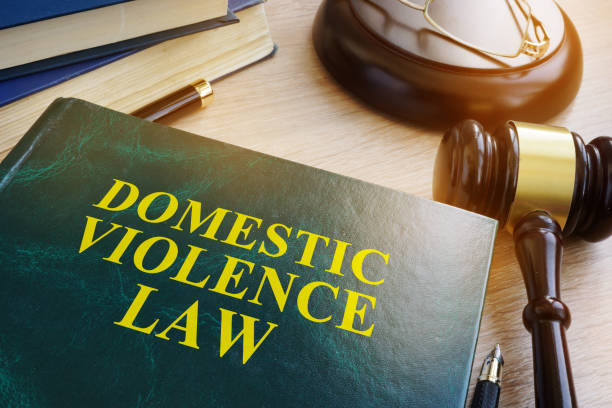Domestic violence Family Law Act deals with how the courts handle family violence cases. Domestic violence is the act of physically, sexually, or emotionally abusing someone. It may also be labelled as an act of forcibly hurting someone with the intent to harm or kill. Here are some of the latest and relevant statistics from the Australian Institute of Health and Welfare (AIHW) about family violence:
- 1 in 6 women and 1 in 16 men have experienced physical or sexual violence from a current or previous partner since the age of 15
- 1 in 4 women and 1 in 6 men have experienced emotional abuse from a current or previous partner since the age of 15
- 1 in 5 women, and 1 in 21 men have experienced sexual violence since the age of 15
But, how does the domestic violence Family Law Act deal with family violence victims? The Federal Circuit and Family Court of Australia appoints a family safety risk screening person. This person is responsible for obtaining information from victims of family violence. This article will highlight domestic violence and Family Law Act 1975 sections that talk about the family safety risk screening information.
Types of Domestic and Family Violence
Physical Violence or Child Abuse
This is an act that results in pain or physical injury to a person or to a person’s family. Physical violence or child abuse sends a clear message to a victim that a perpetrator can hurt them anywhere and in any form. Any adult or child, regardless of gender and age, experiences physical violence through:
- Hitting
- Kicking
- Pushing
- Choking
- Threats of violence or intimidation
Emotional and Psychological Abuse
When someone talks about family violence, they may think that the law only recognises physical violence, but this isn’t the case. Some victims may feel that they are emotionally abused through manipulation which will typically result in serious mental health conditions. Some perpetrators may make family violence victims feel worthless through words that include:
- Yelling
- Insulting
- Calling victim names
- Swearing
- Manipulation
- Gas-lighting (Perpetrators gaslight someone if they want to instil self-doubt and confusion in their victim’s mind)
- Preventing a family member from keeping connections and a meaningful relationship with his or her family through manipulated stories
Stalking
Sometimes, perpetrators will not hurt people but will instead stalk them. While stalking may not necessarily be done with an intention to physically hurt someone, it makes victims feel unsettled because of a perpetrator’s unwanted presence. Stalking may include:
- Repeated phone calls or messages
- Unwanted obsessive attention
- Someone following a person in the streets from a distance
Sexual Assault
Sexual assault is the act of a person forcibly making someone do sexual activities, i.e. without their consent. This may also include inappropriate touching, being coerced and manipulated into sexual behaviour, or any other sexually abusive behaviour. Sexual assault targets the victim’s inner emotional life including the victim’s:
- Dignity
- Honour
- Confidence
- Esteem
- Sexuality
- Self-worth
Technology Facilitated Abuse
It’s important to highlight newer forms of abuse when talking about family violence. Some people may tend to check what their partners do online by:
- Checking their partner’s computer and phones with access to all their social media accounts
- Using spyware to track their partner
- Publishing intimate photos/videos of them and their partner without consent
- Sharing or threatening to share/publish evidence with the intention of outing a person’s sexuality or gender identity, putting that person at risk of stigma, discrimination, and/or harm.
Financial Abuse
Financial abuse is a behaviour in which a person limits someone’s access to money or financial support. This may include a person:
- Taking or using money of a family member without permission
- Not allowing someone to work or gain financial support
- Dictating someone on how to use/spend their money
- Withholding financial information or support that may help a family member with his or her child in regard to child support or daily expenses.
People who suffer from these types of family violence may file an apprehended violence order (AVO) in order to protect them from the perpetrator. If family violence victims want to apply for an AVO, they must contact their state police authorities and seek legal advice from a family lawyer.

When Do Children Experience Family Violence?
Section 4 of the FLA defines abuse as exposing children to family violence. Family violence can have a negative psychological impact on children who witness it, even if they are not the target themselves. According to Section 4AB(3), exposure includes witnessing or hearing about family violence, as well as experiencing the consequences of family violence. Child abuse happens when a child is:
- Overhearing threats of death or personal injury coming from a person towards another family member
- Seeing or hearing an incident involving the assault of his/her family member(s) towards another family member
- Cleaning up a site after the offender intentionally damaged or destroyed property belonging to another family member
- Present when ambulance officers attend to incidents that constitute family violence.
What Is Family Safety Risk Screening?
A family safety risk screening person obtains information from family violence victims orally or in writing. All family safety risk information they obtain is important for a screening process. It’s also important to note that this process is carried out with utmost diligence since it contains sensitive information about family violence.
Domestic Violence Family Law Act
Section 10U: Confidentiality
According to Section 10U of the Act, a family safety risk screening person must not disclose any information about domestic or family violence. However, they may only disclose this information unless a law, state, or territory authorises or requires them to do so. They may also disclose family safety risk screening information to:
- Parties that provided that information who are over or under 18 as long as they are involved in the family violence proceedings
- Another family safety risk screening person who has duties and responsibilities with the family violence proceedings
Family safety risk screening persons may also disclose the information if they reasonably believe that the disclosure can:
- Protect a child from the risk of physical or psychological harm
- Prevent or lessen a serious imminent threat to the life or health of a person
- Report or prevent an offence involving family violence or a threat of violence against a person, a person’s property
- Assist an Independent Children’s Lawyer
- Provide information for research relevant to families
Section 10V: Admissibility
Section 10V of the Act states the admissibility of family safety risk screening information. Admissibility is the character or quality of any material necessary for it to become presented as evidence in court. Family safety risk screening information is NOT admissible in any court or in any proceedings before an authorised person to hear evidence. However, this does not apply to information that indicates children under 18 are at risk of abuse or family violence.
There should also be sufficient evidence of this kind of information available to the court and other sources. Any evidence for medical or other professional services is not admissible in any court or proceedings before an authorised person who can hear evidence. Although this does not apply if a child under 18 has been abused or is at risk of abuse.
Section 10W: Immunity of Family Safety Risk Screening Persons
Another important point under family violence Act is the immunity of family safety risk screening persons. Family safety risk screening persons have the same immunity and protection as a judge of the family court. This means that regardless of a family violence case result, parties cannot sue or file a lawsuit against family safety risk screening persons.

Seeking Legal Advice From JB Solicitors
Family violence in all its forms is harmful and it’s important to carefully consider the evidence from domestic violence victims. This is why our firm JB Solicitors continues to defend and listen to victims who suffered and are at risk of family violence. Our family lawyers specialise in identifying the right legal approach during family violence cases.
If there are children involved in a domestic violence case, we can assist in the divorce process and supervised visits for violent parents. We can also assist in drafting AVOs for people who want perpetrators to stay away, ensuring safety and peace of mind. We also have alternative family dispute resolution methods like mediation and arbitration to help families settle on a mutual agreement.
Contact our family lawyers today in case of enquiries, and for more information read our blog posts about the Family Law Act.
